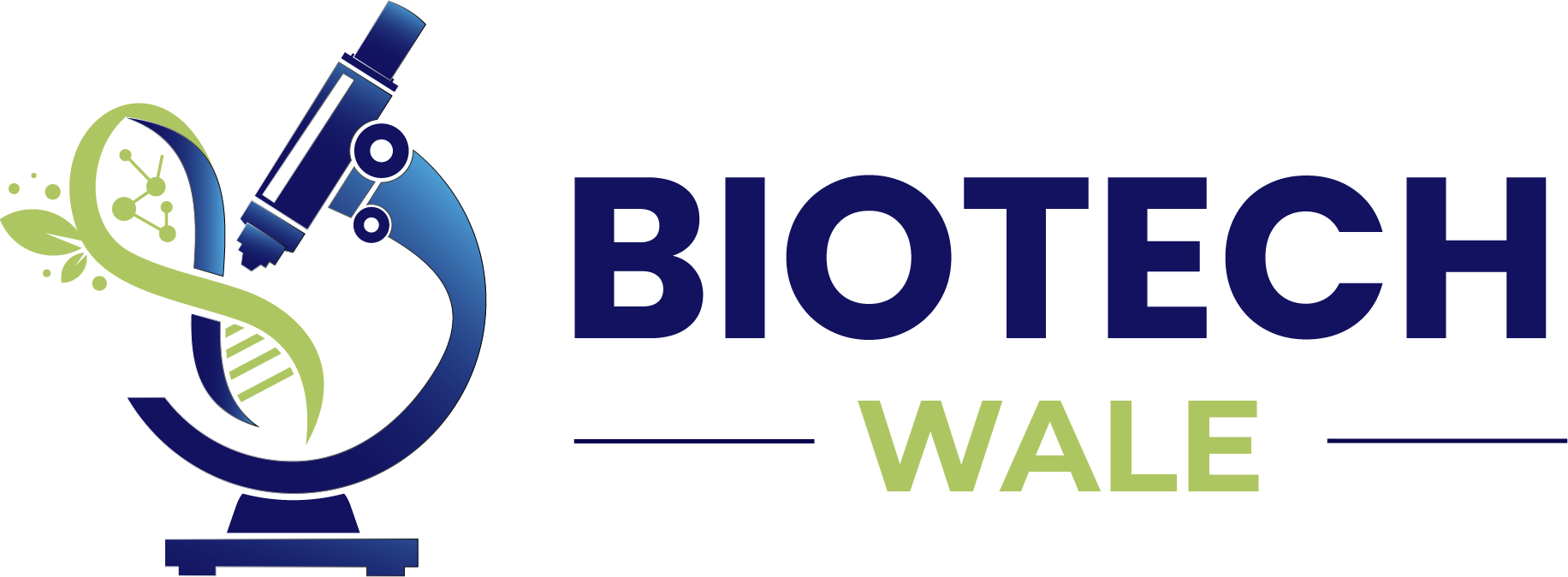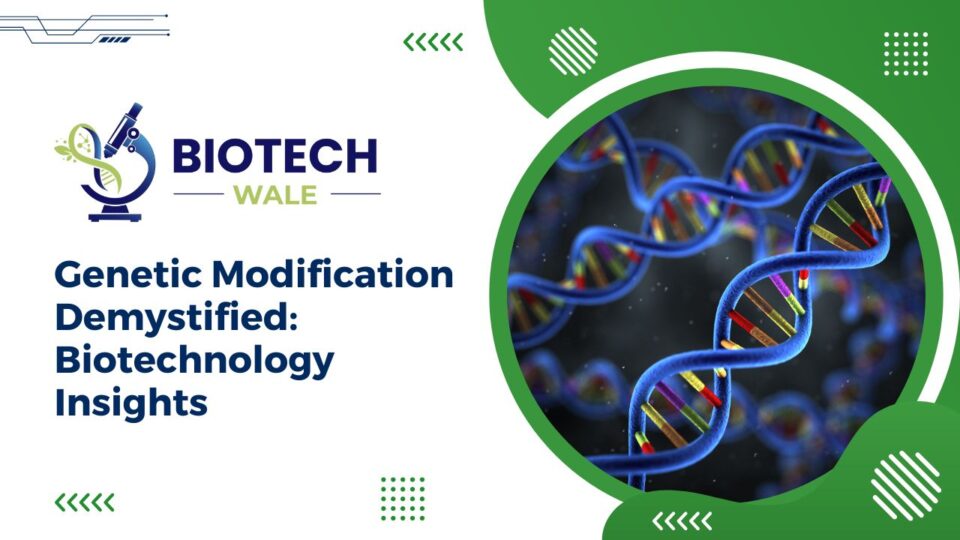Introduction to Genetic Modification
Welcome to the fascinating world of genetic modification, where science meets innovation and possibilities are endless. Genetic modification has been a hot topic in recent years, sparking debates and curiosity alike. But what exactly is genetic modification? How does it work? And why does it matter? Let’s delve into this intriguing realm together and demystify the wonders of biotechnology that shape our world today.
The History and Evolution of Genetic Modification
Genetic modification has a rich history that dates back to ancient times when humans selectively bred plants and animals to enhance desirable traits. Fast forward to the 20th century, where groundbreaking discoveries in genetics paved the way for modern biotechnology.
In the 1970s, scientists developed recombinant DNA technology, allowing them to transfer genes between different organisms. This marked a significant milestone in genetic engineering and opened up endless possibilities for manipulating genetic material.
As research progressed, genetically modified crops were introduced in the 1990s, offering increased yields, pest resistance, and improved nutritional content. The evolution of GM technology continued with advancements like CRISPR-Cas9 gene editing, revolutionizing precision genome editing techniques.
Today, genetic modification is not just confined to agriculture but extends its application to medicine and industry as well. The journey of genetic modification is a testament to human ingenuity and relentless pursuit of innovation in biotechnology.
The Science Behind Genetic Modification
Genetic modification, at its core, involves altering the genetic makeup of an organism. Scientists manipulate DNA to introduce new traits or enhance existing ones. This process is meticulously crafted in laboratories using cutting-edge biotechnology tools.
The science behind genetic modification delves deep into the intricate world of genetics and molecular biology. Researchers identify specific genes responsible for desired traits and transfer them into target organisms. By doing so, they can create crops that are more resistant to pests or diseases, animals with improved growth rates, and even bacteria capable of producing valuable pharmaceuticals.
Through techniques like gene editing using CRISPR-Cas9 technology, scientists have revolutionized the field of genetic modification. This precise tool allows for targeted changes in DNA sequences with unprecedented accuracy.
Understanding the science behind genetic modification is crucial for appreciating its potential applications across various industries. From agriculture to medicine to industry, the possibilities are vast and ever-evolving as advancements continue to push boundaries in biotechnology research and innovation.
Benefits of Genetic Modification
Genetic modification offers a range of benefits across various fields, including agriculture, medicine, and industry. In agriculture, GM crops can be engineered to resist pests and diseases, leading to increased yields and reduced reliance on chemical pesticides. This can have positive impacts on both farmers’ incomes and the environment.
In medicine, genetic modification plays a crucial role in producing pharmaceuticals like insulin and vaccines more efficiently. It also holds promise for personalized medicine by tailoring treatments to individuals’ genetic makeup. Additionally, GM techniques are used in research to study the underlying causes of diseases and develop potential cures.
In the industrial sector, genetic modification is utilized to produce enzymes for processes like biofuel production or textile manufacturing. This not only increases efficiency but also reduces waste and environmental impact. Genetic modification has the potential to address global challenges such as food security, healthcare access, and sustainable production methods.
Controversies Surrounding Genetic Modification
Genetic modification is a topic that sparks debates and controversies in various fields. One of the main concerns surrounding genetic modification is the potential impact on biodiversity and ecosystems. Critics argue that altering organisms’ DNA could lead to unintended consequences, such as disrupting natural habitats or creating superbugs resistant to pesticides.
Another contentious issue revolves around food safety and consumer health. Some people are wary of consuming genetically modified organisms (GMOs) due to fears of unknown long-term effects on human health. The lack of clear labeling regulations further fuels skepticism and distrust among consumers who want transparency about what they eat.
Ethical considerations also play a significant role in the GMO debate. Questions arise regarding ownership rights over genetically modified seeds, genetic diversity preservation, and the implications for small-scale farmers in developing countries.
As biotechnology continues to advance, it’s crucial to address these controversies thoughtfully and transparently to ensure responsible innovation in genetic modification technologies.
Applications of Genetic Modification in Agriculture, Medicine, and Industry
Genetic modification has revolutionized agriculture by creating crops that are resistant to pests and diseases, leading to higher yields. These genetically modified plants can also withstand harsh environmental conditions like drought or extreme temperatures. In medicine, genetic modification plays a crucial role in producing life-saving drugs and therapies, such as insulin for diabetes treatment or gene therapy for certain genetic disorders.
In the industrial sector, genetic modification is used to produce enzymes and other bio-based products more efficiently. This technology allows for the development of eco-friendly processes that reduce waste and energy consumption. Additionally, genetically modified organisms are utilized in the production of biofuels as a sustainable alternative to fossil fuels.
The applications of genetic modification across agriculture, medicine, and industry continue to expand and offer promising solutions to global challenges.
Ethical Considerations and Controversies Surrounding Genetic Modification
The ethical dilemmas surrounding genetic modification often ignite heated debates among scientists, policymakers, and the general public. Questions about playing “the role of a creator” by manipulating genes raise concerns about unforeseen consequences. Critics argue that altering the natural order of organisms could have irreversible effects on biodiversity.
Controversies also arise regarding ownership rights and patents over genetically modified organisms (GMOs). The commercialization of GM crops has raised issues related to corporate control over food production and farmer livelihoods. Additionally, there are fears of monopolies forming in the agricultural sector due to the dominance of a few biotech companies.
Another major ethical consideration is the potential for socio-economic disparities resulting from access to GM technologies. Concerns exist about whether developing countries will benefit equally from genetic engineering advancements or be left behind due to financial constraints.
As technology continues to advance at a rapid pace, navigating these ethical challenges will be crucial in shaping policies around genetic modification practices.
Advancements in Biotechnology and the Future of Genetic Modification
As biotechnology continues to advance at a rapid pace, the future of genetic modification holds promising possibilities. Scientists are constantly pushing boundaries in research and innovation, exploring new technologies that could revolutionize various industries.
In agriculture, genetically modified crops have shown potential in addressing food scarcity and enhancing crop resilience against pests and climate change. The development of disease-resistant plants can lead to increased yields and more sustainable farming practices.
In medicine, genetic modification offers hope for personalized treatments tailored to individual patients’ genetic profiles. This approach could revolutionize healthcare by targeting specific diseases with greater precision and effectiveness.
Furthermore, advancements in biotechnology are extending into industrial applications such as biofuel production and environmental remediation. These innovations have the potential to reduce reliance on fossil fuels and mitigate pollution levels.
The integration of artificial intelligence with genetic modification techniques is also opening up new frontiers in bioengineering. By leveraging AI algorithms for data analysis and prediction modeling, researchers can optimize genetic modifications for desired outcomes efficiently.
Looking ahead, the convergence of biotechnology with other cutting-edge fields like nanotechnology holds immense promise for groundbreaking discoveries yet to come. As we continue to unlock the mysteries of genetics through innovative research endeavors, the future landscape of genetic modification is ripe with transformative opportunities that could shape our world in unprecedented ways.
Conclusion
In the world of biotechnology, genetic modification has revolutionized various industries such as agriculture, medicine, and industry. With its ability to enhance crop yields, develop new medical treatments, and create sustainable solutions for a rapidly evolving planet, genetic modification offers immense potential for addressing global challenges.
While controversies persist around the ethical considerations of manipulating genes and the potential risks involved in altering natural ecosystems, ongoing advancements in biotechnology continue to push boundaries and drive innovation forward.
As we navigate this complex landscape of science and ethics surrounding genetic modification, it is crucial to approach these technologies with careful consideration for their implications on society and the environment. By fostering dialogue between scientists, policymakers, ethicists, and the public at large, we can ensure that genetic modification is used responsibly and ethically to benefit humanity as a whole.
The future holds exciting prospects for genetic modification as researchers explore new frontiers in gene editing technologies like CRISPR-Cas9. By harnessing the power of biotechnology with a mindful approach towards ethics and sustainability, we can unlock even greater possibilities for improving human health, enhancing food security, and advancing industrial processes.
Genetic modification demystifies our understanding of biology while challenging us to think critically about how we shape our world through science. As we embark on this journey into the unknown realms of genetics and technology together,we must tread carefully yet boldly towards a future where innovation serves not just progress but alsothe greater good of all living beings on Earth.





Average Rating